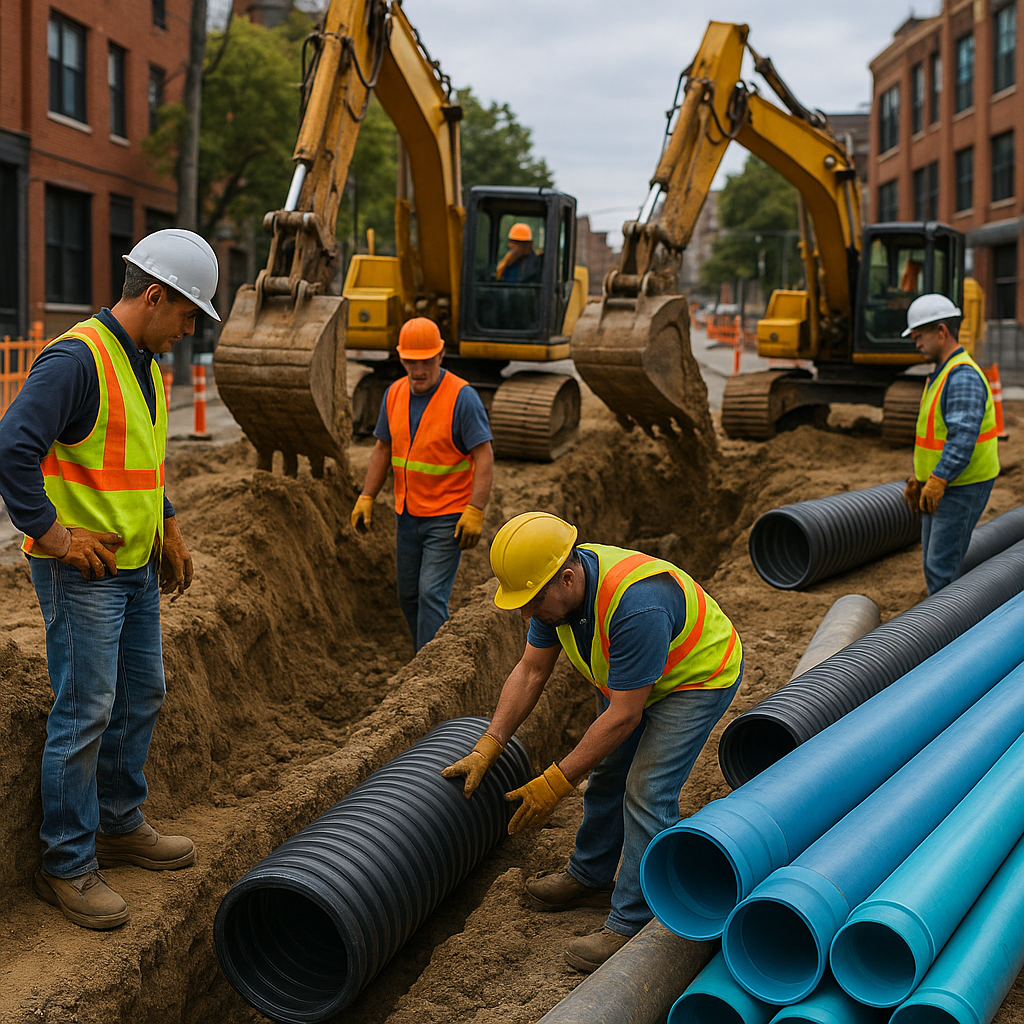Mastering Pipe Bursting: Techniques & Innovations
Learn about modern pipe bursting techniques, technologies, and best practices in sewer inspection for efficient trenchless repairs.

Mastering Pipe Bursting: Techniques & Innovations
Introduction
In the ever-evolving field of sewer inspection and repair, pipe bursting has emerged as a leading trenchless method for replacing outdated or damaged sewer lines. This technique is particularly valued for its minimal disruption to surface activities. With technological advancements, such as AI and high-resolution imaging, pipe bursting has become more efficient and reliable.
What is Pipe Bursting?
Pipe bursting is a trenchless method used to replace old pipelines with new ones. This process involves breaking the existing pipe by pulling or pushing a bursting head through it, while simultaneously laying a new pipe of the same or larger diameter. This method is ideal for sewer, water, and gas lines.
Advantages of Pipe Bursting
- Minimal Surface Disruption: Reduces the need for extensive excavation, preserving landscapes and infrastructure.
- Cost-Effective: Lower labor and restoration costs compared to traditional methods.
- Environmentally Friendly: Less excavation means reduced waste and emissions.
Technologies Enhancing Pipe Bursting
AI and Multi-Sensor Robotics
AI and deep learning integration with multi-sensor robotics are revolutionizing sewer inspections. These technologies enhance defect recognition and predictive maintenance, crucial for planning successful pipe bursting projects.
High-Resolution Imaging
The use of 4K and ultra-HD cameras allows detailed inspection of existing pipes, ensuring precise planning and execution of pipe bursting operations.
3D Mapping and Sonar
3D mapping and sonar provide a comprehensive spatial analysis of sewer systems, helping identify the exact locations and conditions of pipes, crucial for effective pipe bursting.
Wireless and Portable Systems
The use of lightweight, battery-powered systems facilitates ease of operation in tight or remote locations, enhancing the efficiency of pipe bursting projects.
Pipe Bursting Techniques
Static Pipe Bursting
Involves the use of a bursting head pulled through the pipe, ideal for replacing brittle pipelines.
Pneumatic Pipe Bursting
Uses a pneumatic hammer to break the old pipe, suitable for replacing metal and plastic pipes.
Hydraulic Pipe Bursting
Employs hydraulic power to push the bursting head, often used in urban settings due to its reduced noise.
Industry Regulations and Standards
Environmental Compliance
Using automated reporting systems ensures thorough documentation and compliance with environmental regulations, crucial for responsible pipe bursting.
Safety Standards
Remote inspection technologies and real-time monitoring minimize risks, ensuring worker safety during pipe bursting operations.
Data Integration
Integrating Geographic Information Systems (GIS) with inspection data aids in effective infrastructure management and regulatory reporting.
Market Trends and Business Opportunities
Growth and Innovation
The sewer inspection market is expanding, driven by technological advancements and the need for predictive maintenance, presenting vast opportunities in pipe bursting.
Service Expansion
Offering comprehensive packages that include AI analysis and cloud-based reporting can enhance service offerings in pipe bursting projects.
Best Practices for Pipe Bursting
Pre-Inspection
Conduct thorough inspections using advanced technologies to assess the pipe's condition and the surrounding environment.
Safety Protocols
- Prioritize remote inspection to avoid confined spaces.
- Equip teams with portable gas detectors.
- Maintain digital logs for compliance and audits.
Training
Ensure all personnel are trained on the latest equipment and safety protocols.
Case Studies
Macomb County, Michigan
Utilized drone-based inspections to enhance the safety and efficiency of pipe bursting projects.
AI-Driven Damage Detection
Proved higher accuracy in defect detection, leading to more successful pipe bursting outcomes.
Cost and Pricing Insights
Inspection Costs
Professional inspections range from $250 to $1,200, with advanced services offering long-term cost savings.
Equipment Investment
High-end equipment, though costly initially, provides long-term savings through reduced excavation and labor costs.
Conclusion
Pipe bursting, augmented by modern technologies and practices, presents a viable, efficient, and environmentally friendly solution for pipeline replacement. By leveraging the latest advancements, sewer inspection businesses can enhance their service offerings, ensuring successful and cost-effective outcomes.